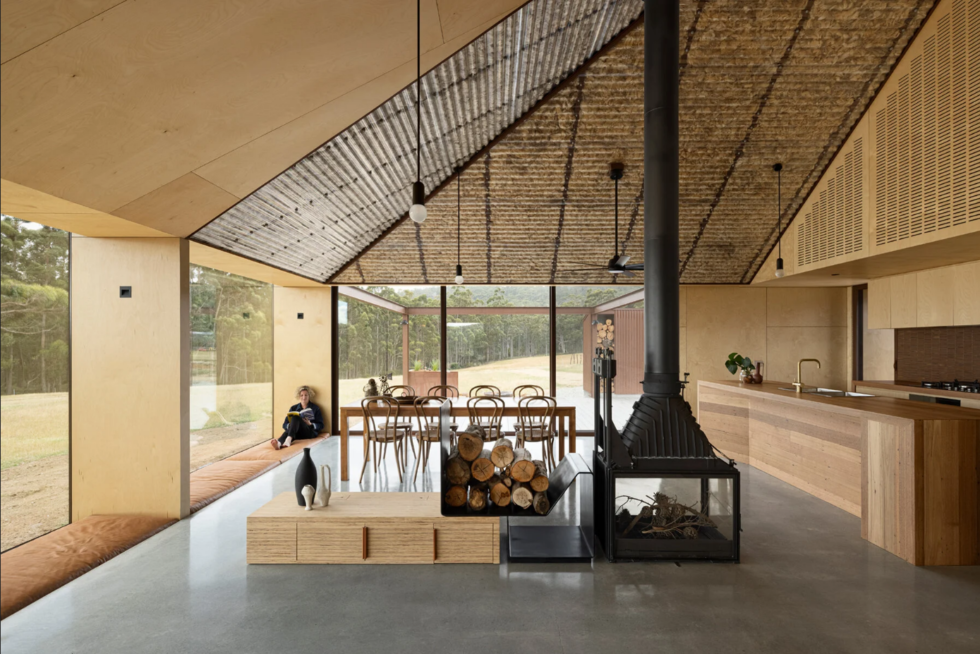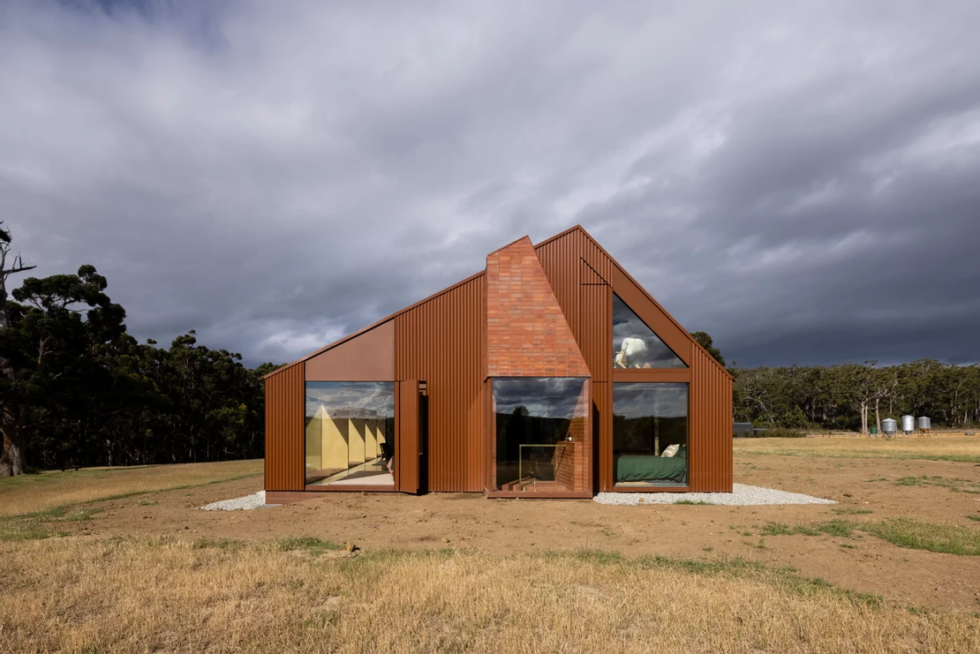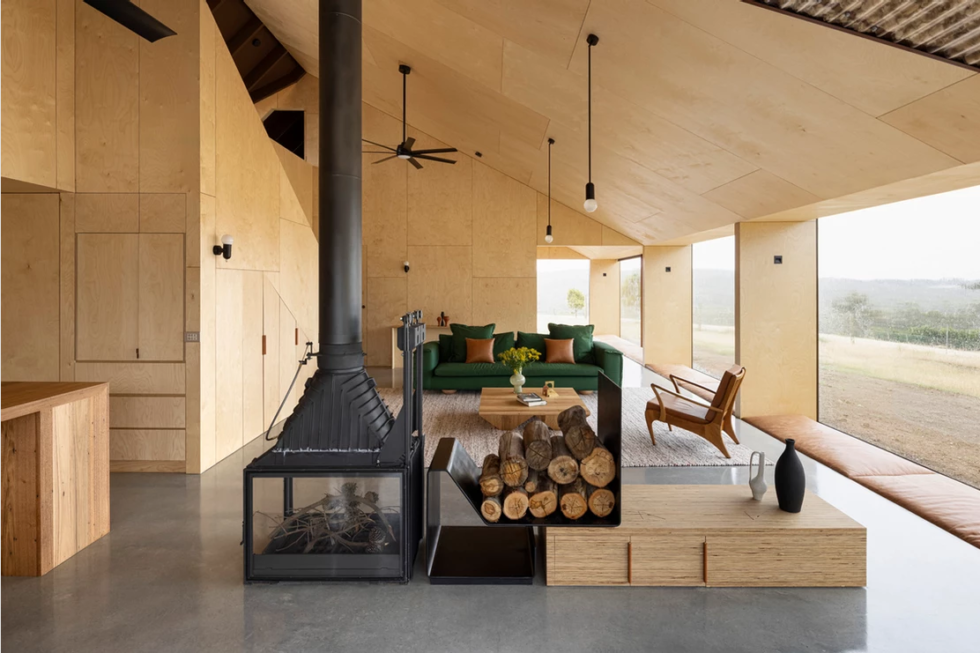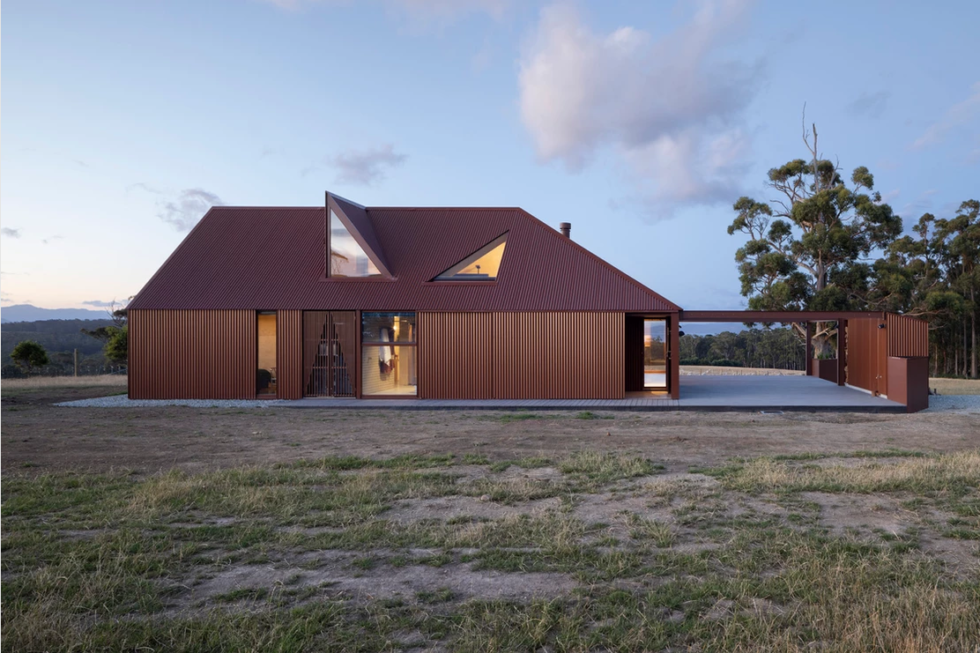Coopworth House
Coopworth House
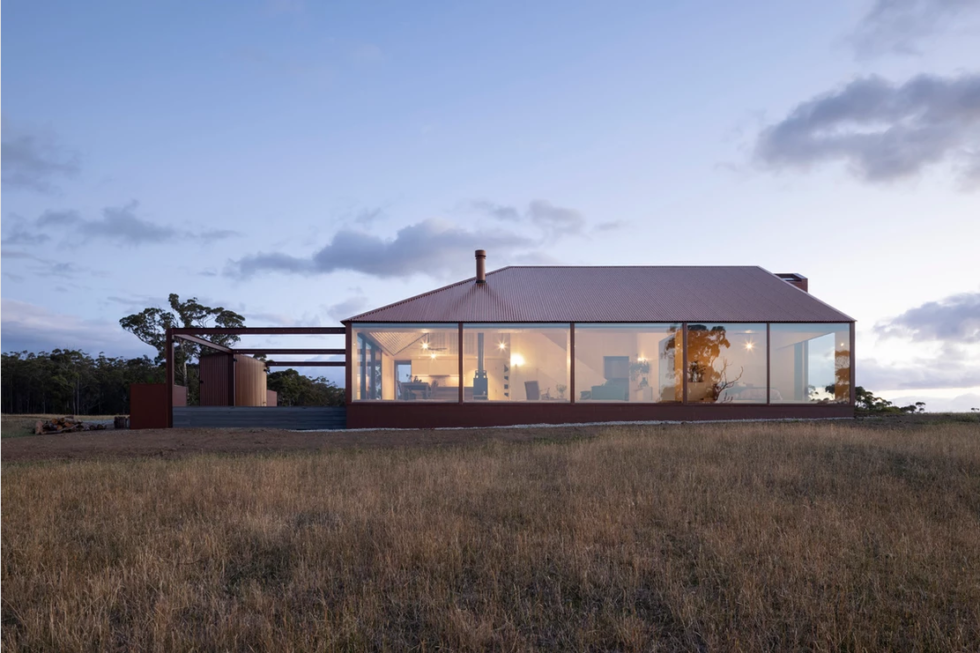
Location: Bruny Island, TAS
Scope: Coopworth House is designed specifically for two occupants, but is versatile enough in its nature that it was able to host various guests or family members
Huddled amongst the lush green, untapped landscape of Bruny Island at the world’s end of Tasmania, Coopworth House is a contemporary take on the country homestead, and channels quintessential barn design within its facade. The house derives its name from the Coopworth sheep that roam the site, with box office views and red lead cottages in the distance providing the backdrop for a home that thrives in its isolation.
Given its remote location, GHD were conscious of exterior materials and ease of access to the site. Many of the house’s parts are lightweight, while local trades were called upon to reduce travel and build ties with the community. The house champions much of the local township, with natural and locally sourced products favoured, including plywood and recycled timber. The furniture and LED lighting of the house is also locally designed and manufactured. Charred timber sculptures crafted by local First Nation artist, Robby Wirramanda, provides an arresting, site-specific addition protecting the septic field from farm machinery, reiterating the balance between the pragmatic and poetic within the landscape.
The house itself is a compact domicile that has been deliberately composed in that manner to maximise farmland. Despite its small footprint, the house is quite open and spacious, with an assortment of lofty volumes and snug spaces accentuated by a utilitarian palette of plywood linings and concrete floors, drawing focus to a dramatic ceiling lined with Coopworth wool from the property. Sealed with clear, polycarbonate corrugated sheeting, the wool adds to the thermal performance, while celebrating the agricultural connections as an abstract wool fresco. Smartly intertwined bespoke details, including a folded steel firewood stand and leather-wrapped bathroom fittings, add further interior grain. The textural choices made by FMD reflect the surroundings of the house, and pay tribute to the features within its immediate midst.
Coopworth House is designed specifically for two occupants, but is versatile enough in its nature that it was able to host various guests or family members, thanks to FMD’s thoughtful and creative interpretations of Australian verandah sleepouts and caravan bunk beds, seen outside where a part of the concrete slab is left deliberately untouched. Channelling a connection to the outdoors while inside, all window bays are bordered with sunken beds that also nurture familial connections. The mezzanine, likened to an attic, doubles as a study space and guest room, while an additional plywood-lined bed is discreetly integrated amongst a wall of joinery.
The northern elevation sees a range of windows implemented into the structure that captures the view. Frameless windows are pushed to the edge of the floorplate to embrace wild winds and rains - at once immersed in the beauty and brutality of the weather and well protected from it. Given the climate that sees arctic winds rise from the south, the house is smartly positioned to wear these attacks, and provides ample shelter for its occupants.
The omnipresent chimney stack seen atop the historic shacks scattered around the island has been reimagined by FMD as a sunken bath, connecting the bather to the surrounding paddock and resident sheep, as well as long views to the bay beyond.
With the house designed in a contemporary time period, the sustainability measures implemented by FMD are practical and thoughtful. In-ground trenches eliminate the need for roof gutters, while all but one roof penetration is removed, mitigating leaks and fire risks. Compact spaces that can be closed off when not in use significantly reduce heating and cooling demands. UV heat and radiation is absorbed by the day beds situated near the bay windows in summer, while concrete floors, wool-lined ceilings, operable ventilation panels and ceiling fans effectively moderate temperatures without the use of artificial sources.
A large solar array and water tanks situated on the nearby farm sheds provide a self-sustaining water and power supply, while an efficient, slow-combustion wood fire is the main source of heating. Spaces are designed for universal access, with consideration of family with disabilities and the couple’s potential future needs, echoing sentiments by some of Australia’s most well known designers, who believe universal house design should be uniform across all new builds.
FMD have consciously and thoughtfully built this house from the ground up. The considerations made to materials, textures, local offerings and the surrounding landscape have laid a platform that Coopworth House now stands upon with conviction. The house is a tribute to the land and its surroundings, and will provide a place of refuge for its tenants well into their senility.
Architects: FMD Architects: https://www.fmdarchitects.com.au/ Finoa Dunin
Photography: Dianna Snape
Products Supplied: 1 x Cheminees Philippe Radiante 846 3V
The Radiante 846 3V double door three sided wood fire gives warmth and soul to any room. It is one of the most popular designs in the Radiante collection offering superb views from both sides and one end of the firebox.
Awards: The Esmond Dorney Award for Residential Architecture - Houses (New)
